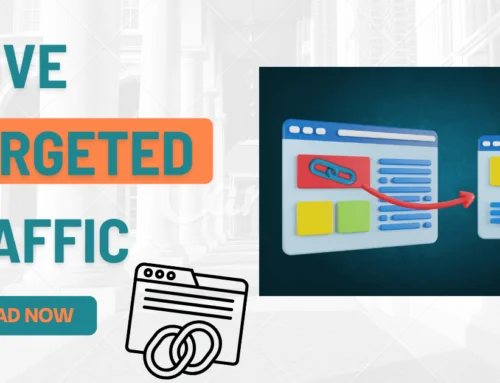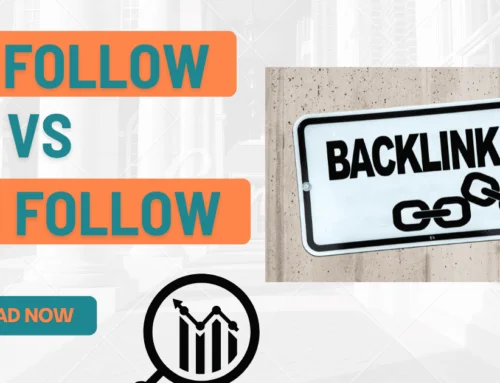Building links is one of the most effective ways to improve your website’s search engine ranking. However, if you don’t know what you’re doing, it can be a huge waste of time and money. In this blog post, we will outline a step-by-step guide to preparing a successful link-building campaign. We’ll cover everything from finding high-quality link partners to tracking your results. So, whether you’re just starting out or you’ve been building links for years, this guide will teach you something new!
What is a Link Building Campaign?
A link-building campaign is an organized effort to increase the number of links pointing to a website. The goal of a link-building campaign is usually to improve the search engine ranking of the website. However, links can also be built for other purposes, such as increasing traffic or improving brand awareness.
Step #1: Set Your Goals
Before you start building links, you need to know what your goals are. Are you trying to improve your website’s search engine ranking? Or are you looking for ways to increase traffic or improve brand awareness? Once you know what your goals are, you can start planning your campaign.
However, you should not only think of goals in terms of link quantities but also the type of results you are wanting to achieve. For instance, it is important to consider the type of audience you want to reach, the topics you want to target, and the type of links you want to build.
Determining all these things in advance will help you save a lot of time later on.
Step #2: Research Your Link Partners
Now that you know what your goals are, it’s time to start finding potential link partners. There are many different ways to find websites that might be interested in linking to your site. However, not all websites are created equal. You’ll want to focus on finding high-quality link partners that will be beneficial to your campaign.
Some things to look for when researching potential link partners:
- Relevance: Is the website relevant to your industry or niche?
- Authority: Does the website have a good reputation?
- Traffic: Does the website get a lot of traffic?
- Link Quality: Do the website’s links pass authority?
You can use a variety of tools to help you research potential link partners. Google’s PageRank tool is a good place to start. You can also use link-building tools like Moz’s Open Site Explorer or Ahrefs’ Site Explorer.
Step #3: Reach Out
Outreach can be one of the most difficult and time-consuming parts of a link-building campaign. But it’s also one of the most important since you won’t be able to get the backlinks you are working for if nobody opens or responds to your emails.
When reaching out to bloggers and website owners, it’s important to personalize your emails. Generic, mass-produced emails are more likely to be ignored. You should also be clear about what you’re offering and why it would be beneficial for the recipient. Moreover, be clear about what you will be expecting from them (number of backlinks, type of anchor text, topic, etc).
And don’t forget to follow up! If you don’t hear back from someone, it’s perfectly acceptable to send a second email a week or two later.
Step #4: Plan Topics & Anchor Text
Once you have landed an agreement with a potential link partner, it’s time to start planning the topics and anchor text for your links. The topic should be something that is relevant to both your website and the link partner’s website. For example, if you’re a pet store and the link partner is a blog about pet care, you might write an article about “The Top Ten Healthiest Dog Foods.”
Your anchor text is the actual text that will be used as the hyperlink. Anchor text should be descriptive and relevant to the page you’re linking to. For example, if you’re linking to an article about dog food, your anchor text might be “healthy dog food.”
You can also use keyword-rich anchor text to help improve your website’s search engine ranking. However, you should be careful not to overdo it as this can result in a penalty from Google.
It is also worth keeping in mind that some websites will set restrictions on the placement of your anchor text and also the type of anchor text you use. For instance, some sites will only allow you to place your anchor text in the author section of the article while others might only allow you to use branded anchor text such as the name of your website.
When planning topics and anchor text, it’s important to keep your link partner’s wishes in mind while also trying to achieve your own goals.
Step #5: Write High-Quality Content
Many link-builders think that the quality of the content they write for link-building is not important since it won’t be posted on their website. However, this is not the case. The quality of your content will directly affect how likely link partners are to respond positively to your outreach and also how many people will actually click on the links you’re trying to promote.
Therefore, it’s important to write high-quality, well-researched articles that are relevant to both your website and the link partner’s website. Not only will this make it more likely that you’ll get links from your link partners, but it will also help improve the click-through rate (CTR) of your links, which is another important factor in ranking higher in search engines.
If you are not confident in your writing skills, you can find affordable content writing services on websites like Fiverr or by hiring a team of professionals, depending on your budget. Either way, never cut corners when it comes to the quality of your content.
Step #6: Keep Track of Your Progress
Finally, it’s important to keep track of your progress throughout the link-building campaign. This means keeping track of the number of links you’ve acquired, the anchor text used, the topics covered, and the CTR of your links.
You can use a simple spreadsheet to track this data or opt for a more sophisticated tool. Either way, regular monitoring will help you see what’s working and what isn’t so that you can adjust your strategy accordingly.
Need Link Building Campaign Management Assistance?
Managing a whole link-building operation on your own can be tough, we get it! At GetBacklinks, we offer link-building campaign management services to take the hassle out of link building for you.
We’ll work with you to create high-quality content, outreach to potential link partners, and track your progress so that you can focus on running your business.
If you’re interested in learning more about our services, contact us today! We offer a free consultation where we’ll discuss your needs and see how we can help you achieve your goals.



